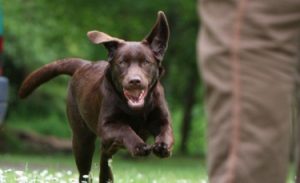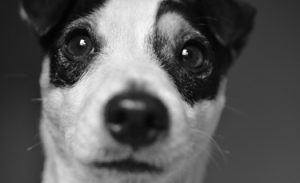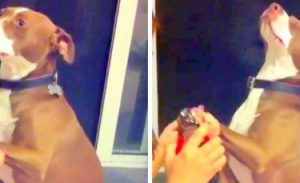Other names: Swedish Lapphund, Svensk Lapphund
The Swedish Lapland Dog, or Swedish Lapphund, is a dog with physical characteristics of the Spitz type, but slightly smaller than average in size. With a solid frame, resistant and enduring, it displays a certain elegance thanks to its haughty head carriage and its light and ample gait.
<!–
–>

| Long | |
| Sweden | |
| Average | |
| Long |
| Sex | Weight | Cut |
|---|---|---|
| Female | From 15 kg to 20 kg | From 40 cm to 45 cm |
| Male | From 15 kg to 20 kg | From 45 cm to 50 cm |
History of the breed
Today we cannot establish the origins of Swedish Lapland dog with precision, but it seems to be one of the oldest breeds of the Spitz type in Europe . In the past, he accompanied nomadic Lapp (or Sami) reindeer herders who appreciated them as much for their versatility (driving and herding, hunting) as for their resistance to the harsh climatic conditions that characterize Lapland (region today). straddling Sweden, Finland, Norway and Russia). The breed was definitively recognized by the Fédération Cynologique Internationale on January 19, 1955. Its official FCI standard in force was published in November 2011.
Physical features
His coat: abundant, erect, straight, with a dense and slightly curly undercoat. Shorter at the level of the head and the front parts of the legs. More dense at the level of the neck (forming a collar), the sternum, the front of the legs and on the tail. The set provides the dog with very good protection against bad weather and cold.
Its color: solid black, ideally with a bronze tone (shades of brown).
His head: slightly longer than it is wide, with a rounded forehead and a very well marked stop.
His ears: small, triangular in shape, erect and slightly rounded at their end. Strong and set wide apart, very mobile.
His eyes: very expressive, almost horizontally set, wide apart, round in shape, rather large without being prominent and brown to dark brown in color.
Its body: forming part of a rectangle (slightly greater in length than the height at the withers), robust, with a short and wide kidney, a well-muscled and slightly sloping croup, a fairly high and well-developed chest, a slightly raised belly. .
Its tail: rather high set, of sufficient length to reach the point of the hock, carried rolled up on the back when the dog is active.
Behavior and character
| Affectionate | |
|---|---|
| Calm | |
| Protective | |
| Independent | |
| Hunter | |
| Barks / howls |
Behavior with others
| Cohabitation with children | |
|---|---|
| Sociable with other animals | |
| Love strangers |
The Swedish Lapland Dog is a dog animated by great vivacity and an almost permanent desire to work . Responsive, attentive and versatile, he is an excellent herding dog (notably reindeer), tracking and many other fields of work that require intelligence, resistance and endurance . Always inclined to please his master, the Swedish Lapland Dog is more suspicious of strangers , but without being a first-rate advocate.
The Swedish Lapland Dog
is it right for you? Take the test!
Education
| Clever | |
|---|---|
| Obedient |
The Swedish Lapland Dog is not a particularly difficult dog to train . Its education must however be early, firm and consistent, while being associated with good socialization.
Living conditions
| Suitable for apartment living | |
|---|---|
| Good for new masters | |
| Love it hot | |
| Love the cold |
The Swedish Lapland Dog prefers the great outdoors and the great outdoors to city and apartment life. In town, the ideal for him would be to have a large fenced garden where he can move around freely. Resistant to outdoor climatic conditions, he nevertheless appreciates accompanying his family indoors when he has the opportunity.
Health
| Solid | |
|---|---|
| Ease of gaining weight |
the Swedish Lapland Dog is an overall hardy and resilient dog. Its double, well-supplied hair effectively protects it against the harsh winter conditions (cold and bad weather). There are no known predispositions to disease in this hardy and old breed.
Hypoallergenic breed
No
Litter size
Between 2 and 9 puppies
To protect you from these risks and insure your companion in the event of health problems, Woopets recommends a Swedish Lapland dog dog insurance .

function showAssuranceForm () {var siteReferer = var id_race_association = ”; //console.log(id_race_association);success: function (html) {}});}document.addEventListener (‘DOMContentLoaded’, () => {$ (‘# assuranceModalBanner’). on (‘show.bs.modal’, function (event) {showAssuranceForm ();});});
Life expectancy
Minimum: 12 years old
Maximum: 17 years
The life expectancy of a Swedish Lapland Dog is, on average, between 12 years and 17 years.
Calculate the human age of your Swedish Lapland Dog!
To choose… 1 year 2 years 3 years Four years 5 years 6 years 7 years 8 years 9 years 10 years 11 years old 12 years 13 years 14 years old 15 years old 16 years old 17 years 18 years old 19 years old 20 years 21 years old
Maintenance and hygiene
| Ease of maintenance | |
|---|---|
| Cost of maintenance | |
| Hair loss |
| Drool level | |
|---|---|
| Ease of grooming |
The naturally beautiful and silky coat of the Swedish Lapland Dog is quite easy to maintain . It sheds very little hair and is hardly ever smelly.
It is recommended to brush the dog weekly to maintain the beauty and cleanliness of his coat. During the moulting period, and even if the hair loss is moderate, brushing should be done 2 to 3 times a week to remove the dead hair
Price and budget
Purchase price
Mini
800 € Maxi
1200 €
The purchase price of a Swedish Lapland Dog is between € 800 and € 1,200.
Annual maintenance cost
Mini
NC Maxi
NC
The annual maintenance cost of a Swedish Lapland Dog is between NC and NC.
No name is currently proposed. Use our tool to find the name of your Swedish Lapland Dog!
Want the best for your dog?
Create tailor-made food for your Swedish Lapland Dog
I discover !
PROMO -30% | Delivered to you!

Physical activity
| Athletic | |
|---|---|
| Energy level | |
| Potential to play |
He needs regular exercise to burn off . He enjoys long walks, but also jogging, hiking and swimming in the company of his master. He is, moreover, quite gifted for agility, obedience and herd tests.
Others
| Master character <span class="btnTooltip qTip2" title="- Calm: the master must be gentle and know how to show patience. – Active: the owner must be energetic and dynamic to live in harmony with his dog. – Hyperactive: the owner must be stimulating and very restless to suit the temperament of his dog.”> |
Calm |
|---|
We talk on the forum
Differences between Finnish, Swedish and Lapland Shepherd dog
Message from Pauline F
bam the dog now bam the dog’s revenge
Message from angeacorne
Amazing – a dog saves another dog
Message from Joo
My dog has doggy breath!
Message from Jérôme Bernier
My dog got into a fight with another dog and he got hurt …
Message from Nicole
Do you have a question about the Swedish Lapland Dog?
Do not hesitate to ask Woopets visitors for advice on the forum!
FCI Information
FCI No.
135
FCI Group
Group 5: Spitz-type and primitive-type dogs
Recognized by FCI
Since 1955
</div










